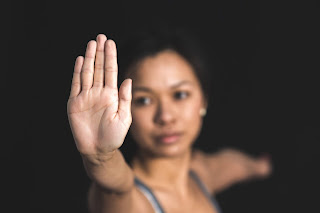What is the iceberg concept of culture and how may it effect us regarding our own judgements of others?
What is the iceberg concept of culture and how may it have
an effect on our own judgements towards others?
The iceberg concept of culture is a model which enables us
to view the many depths of a culture in a relatively simple way using an ice
berg as an example. If you imagine that the iceberg is the culture of a society
there will be some parts of it which are visible to us above the water but
there is a larger portion that is hidden underneath the water that we cannot
immediately see.
The purpose of counselling means to be able to understand
and relate effectively to other people. It is therefore essential to understand
what it is that impacts a person and why they may act in a certain way, it is
very easy to make our own assumptions about why we think people are the way
they are and at some time consciously or not we may all have judged others. However
the truth is that it is not possible to form a fair opinion on another person
or culture until you have taken the time to get to know that person or actively
participated in their culture so you have learnt the underlying beliefs,
values, and thought patterns that dictate their behaviour.
The significance of this is that we may have been born in
one place where we have been conditioned by our culture and therefore developed
certain habits and ways of thinking and reacting to others .For those of us who
may choose to stay in that same place for the rest of our lives we will not
face any challenges navigating change however if at some time you decide to
travel to a different country or spend time living in a different culture we
will then automatically take our learned beliefs and our differences with us
and as a result it can be challenging at first as we may feel we do not fit in
as we then need to adapt to new cultural expectations as the majority of
qualities which often drive a culture are often not immediately visible to us.
We all have developed our own tolerance levels and some of us may be
more so then others but it is worth taking the time to understand ourselves
better and become more self-aware so we can then identify our strengths but
also our prejudices so we are able to make the changes necessary and allow us
to gain a new perspective than the one we may not have previously been
accustomed too.
So how does the model work? There are three layers to the iceberg the surface,
shallow and deep layer and the relevance of each layer is as follows:
The Surface layer consists of:
food, dance, habits, worship, celebrations, language, music, dress.
This is the view that is easily visible to us as it is above the water,
the external or conscious part of a culture, for example have you ever been
judged someone by the way you choose to dress or have you been prejudice
towards someone by their taste in music which may have been different to your
own? Maybee you have been sitting in your garden and your neighbours music
which is not too your personal taste can be heard blaring from their home or
you may have been visiting another country on holiday and did not understand
how they could eat the food they did at the time that was normal for their
culture.
I remember being in Indonesia and
been given a bowl of hot rice and curry for breakfast when I was normally
accustomed to a cold breakfast cereal, it took some getting used to especially
as the weather was extremely hot at the time but my taste buds adapted and although
I only spent 2 weeks here I will always treasure those memories as its at times
like that when you really become aware of how important the differences are no
matter how small they seem at the time. Have you ever rejected someone simply
because of the fact they spoke a different language which you could not
understand or maybee had an accent you personally did not like? You see if you
are really honest with yourself prejudice can affect us all at times even if
you feel it does not.
The shallow layer is just below the surface, the internal or subconscious
part of culture, for example have you ever been at a party and seen one person
who may be smiling with an open body language or someone one who has their arms
crossed and looks unhappy who would you be most comfortable approaching? I
fully admit that one of my strong points is not patience I hate been late for
anything and get frustrated when people are late when I have arranged to meet
them. For me I respect other peoples time but for others it may not be such a priority
for them or they may come from a culture that is more relaxed in regards to how
time is viewed.
Concept of beauty is an interesting point, in some cultures you will see
people’s social media feeds full of pictures of them with full make up, hair
extensions and the latest fashions, the media unfortunately can put huge
pressure on young girls into how they should look to attract boys showing women
with perfect air brushed bodies which can sometimes be extremely damaging
mentally and emotionally to girls and women alike as they may struggle to
compare themselves with what is considered the ideal of how you should look.
However in other cultures beauty can be seen in a completely different way not
by appearance but by their character, in these cultures women are considered
beautiful if they are a good mother, or hard working or intelligent. Patterns of
handling emotions is interesting too in some cultures it is viewed as weak if a
man cry’s or shows emotion and yet in others it is encouraged, it really is
fascinating how different we all are based on our previous social conditioning.
The deep layer consists of: reasons for attitude, self-concept, definition
of obscenity, identity beliefs, attitude to dependants, religious beliefs, relationship
with death and self-worth.
The deep layer is below the shallow layer and this is when you really
learn to appreciate the differences and learn to fully understand another
culture. For example I personally
greatly dislike obscenity I literally cringe when people use bad language it
makes me feel very uncomfortable, now is that considered a prejudice? It could
be by some people. Self-concept is an interesting point, I’m not ashamed or
embarrassed to admit I regularly do internal work on myself to enable me to not
only understand my self better, but so that I can understand others also, I personally
make the choice to become as aware as I can so I can grow and develop on all
levels but for others they may view that as unnecessary or self-indulgent, when
I view my personal growth as essential so I can become a more rounded and
connected human being.
How do you feel about your responsibilities towards your family? Some
cultures believe that once a child reaches a certain age they are then an adult
and fully responsible for all the choices they then make and free to live their
own lives and pursue a career, for other cultures children will grow up to be
taught that their role is now to dedicate their lives to caring for their
elders. How do you feel about death? Are you afraid or perhaps through your
religious beliefs you have been taught that there is another life waiting for
you. Everyone one of us is different in our views and beliefs, but it is important
to note that people only tend to disclose those parts of themselves that they
are aware of, hence the importance of becoming more aware so we can all become
more understanding and tolerant towards others.
We are all caught within our own frame of reference which is how we have
learned to behave through our own experiences in life, we may feel we are not
in any way prejudice towards others but what about ourselves? Have you ever
compared yourself to someone else or compared your life to theirs in some way?
We may live a very modest life and struggle to provide for our family and could
consider ourselves relatively poor compared to perhaps a celebrity, but then
compare yourself to a victim of an earth quake who has had their entire home
and livelihood destroyed and possibly lost loved ones does the perception of
how wealthy you are now increase?
You may feel you are not selfish in any way and completely selfless, you
may give to charity regularly and help those you see in need but when you
compare yourself to someone who dedicates their life to helping others such as
fire men, nurses ,doctors aid volunteers
oversees …the list goes on, does your concept now again change? The truth
is we are all constantly evolving as
human beings and our self-perception will fluctuate depending on how honest we
choose to be with ourselves and also how we evaluate and relate to others on a
daily basis.
All the decisions we make about others we only have our own individual frame of reference too relate too therefore if we have not learned to appreciate difference we will find we not only attract but actively encourage conflict with others. The only true way to fully understand another person is too learn to respect and understand their frame of reference which will not only allow us too communicate more effectively with that one person but in turn will enable us too then be able too understand others for who they really are and not who we feel they may be.
All the decisions we make about others we only have our own individual frame of reference too relate too therefore if we have not learned to appreciate difference we will find we not only attract but actively encourage conflict with others. The only true way to fully understand another person is too learn to respect and understand their frame of reference which will not only allow us too communicate more effectively with that one person but in turn will enable us too then be able too understand others for who they really are and not who we feel they may be.




Comments
Post a Comment